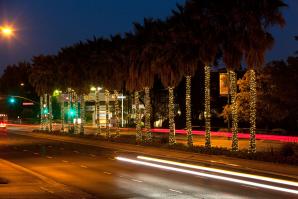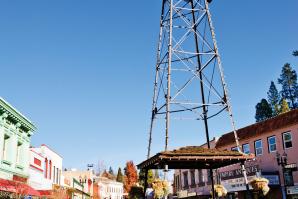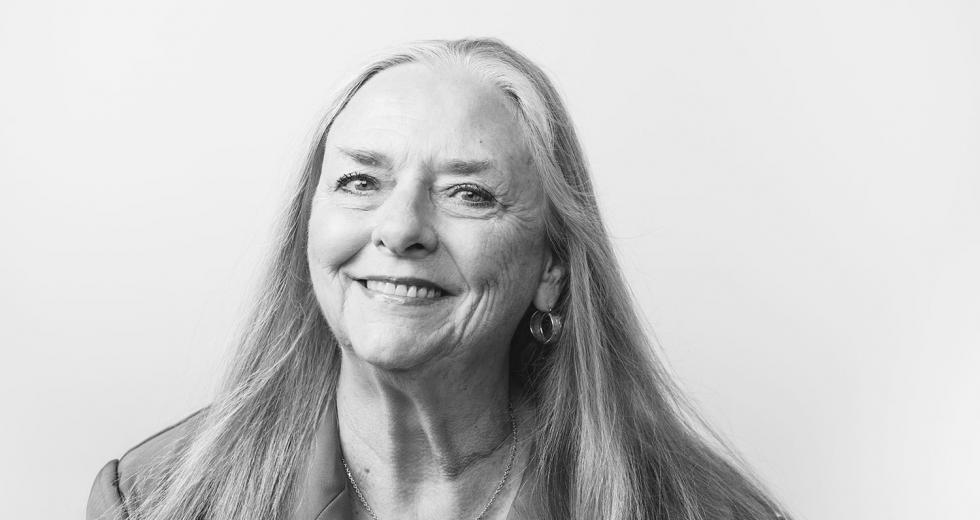Jeannie Bruins knows Citrus Heights; she’s lived there for 35 years and has served on its city council for five terms. She also co-chaired the campaign to give Citrus Heights cityhood in 1996. Comstock’s spoke with Bruins about how the community has changed and what’s in store for the future.
You’ve lived in Citrus Heights since 1984 — what are some of the major changes you’ve seen in the past 35 years?
When I moved here, Citrus Heights was not considered a desirable place to move and stay. It was a move-in and move-out type of community. It was a starter-home community. The quality of life has dramatically improved. The infrastructure has dramatically improved. We’ve just received the designation of Tree City USA [by the Arbor Day Foundation]. We’re proud of our trees. Even though Sacramento is called the City of Trees, we actually have more trees per capita. Our focus of being just a suburban community developed to provide homes to people who commute to Sacramento has changed. We have some major employment in Citrus Heights, which has been tricky because we don’t have land. But we’re very proud of the fact we have a [Small Business Administration] building here that does disaster response for the entire western United States — Guam, Hawaii and Alaska included. Right now, they’re swelled with federal workers responding to the Camp Fire. We [also] are shifting from being a purely retail city to services and actively seeking out businesses that will provide employment to people who want to live here and work here.
Citrus Heights has been incorporated for 22 years. What important lessons have been learned along the way?
I compare it to David and Goliath and “The Mouse that Roared.” The little guy won. We had so much working against us, and it was such a long effort, and we prevailed. So the lesson I’ve learned is that this community is very special. In the early days, I used to think it was a disadvantage that we were built-out — we didn’t have lots of land to develop. … My opinion shifted as I realized that our city is succeeding because we know who we are. We know what we can do, we know what our strengths are, we know what our limitations are, and we are working within the confines of that successfully. We tried so hard to become a city for so long that the old-timers, like myself, really appreciate what we have, because we remember what we had before. One of our challenges is to keep that alive with our newer employees, our newer citizens, so they have appreciation for what it took for us to get on the map. … We [also] have a tremendous amount of volunteerism. When you quantify what they do for our city in dollars and cents, our volunteers save us about half a million dollars a year in payroll. So the value of volunteerism and community connection is another lesson that’s very important.
You’ve said you’d like to see Citrus Heights become more of a thriving jobs center with good-paying jobs. What steps are needed to make that happen?
One of the steps we’ve already taken is we have hired a new community development director, Meghan Huber, who we stole from Rancho Cordova. She’s very well-connected in the community. She knows brokers, she knows businesses. That’s the first step. The second thing is to make it a city that businesses want to come to. We started our new branding campaign last year; “Solid roots. New growth” is our tagline. So we celebrate our solid roots, but we have a vision and a focus on new growth. Our policies address this and make it favorable and even easy for businesses to come to Citrus Heights. We have a good employment base here because we have over 6,400 people per square mile. We have a lot of people in Citrus Heights. We have a good, solid and growing employable group of people. … We have a lot of new families and young professionals who are moving to Citrus Heights or live in close proximity.
Tell me more about policies that make it easy or desirable for a business to move to Citrus Heights.
We have one-stop shopping, if you will, so if a business comes to Citrus Heights, they come to our front counter, and all the necessary staff comes to them. They don’t have to go bouncing around from department to department. From a staff standpoint, we are pretty flat. We don’t have many layers of management they have to tread through. We have made a conscious decision to look at some of our older policies that worked for us when we were a new city or were grandfathered in from the county … that we thought were the right way to go, and today, not so much so. An example would be our design standards. There was a time when beige was the color of municipalities; that’s just not the world we live in today. So when people come to us and have designs they want to do, we are looking with a more open eye. We also have programs in place to provide financial help for signage, facade improvements for the small-business person.
Businesses want to come to a city that is attractive. We still have challenging areas in Citrus Heights, and so our focus is on doing our part, which is improving our infrastructure and making our city look good, so [businesses] want to be physically located here. Right now our focus is Auburn Boulevard; we are looking forward to finishing that. We started that a number of years ago — undergrounding utilities, making the streets complete streets, visually improving the look.
Citrus Heights has Sunrise MarketPlace among other shopping centers. How has the shift to online shopping among consumers impacted retail in your city?
It has definitely impacted it. We’ve had services close, and [Sunrise Mall] has, I think, seen it’s best days as a mall. Namdar [Realty Group] is the new owner, and they have been buying up aging and distressed malls all over the United States, and they have a speckled reputation as far as what they’re doing with those. We are not sitting back waiting to see what is going to happen. We are aggressively reaching out to them to that end. The city manager, community development director and I are flying out to New York to see them in the next 30 days.
Our internet sales is our No. 2 sales tax producer at this time, so that says a lot. Retail as we have known it is, I think, something of the past. Will we still have a retail presence? Absolutely. It’s just going to look different. It’s going to interact with our community differently. The mall is the big example. It needs to become something other than what it has been. So mixed-use is a very logical direction to go into, and I certainly support that — a mix of services, retail, destination, dining [and] residential. How people live their lives is different. We aren’t just everybody-has-their-own-front-yard, backyard, five-houses-to-an-acre residential model that drove building in the ’70s, ’80s, ’90s and 2000s. If we’re going to thrive as a community, we’re going to need to make those changes.
One of the things people don’t realize is the mall doesn’t have one ownership. It has multiple ownerships. The major stores — Macy’s, Sears and JCPenney — they own their own buildings and the dirt they sit on, and they own a portion of the parking lot. [Namdar] owns everything else. So you don’t just have one person coming to the table. You have all of those parties, and they need to agree to act, and that has been a major hindrance. That’s typical; that’s not just Sunrise Mall. … In a perfect world, it would be great if someone came along and bought it all, but that’s not what we’re working with. So that’s a huge challenge to redeveloping any major shopping center.
In response to a possible civil rights lawsuit, Citrus Heights may switch to district-based elections. How is that process going?
[There’s] an attorney out of Malibu who has made millions of dollars suing cities and forcing them into districts. [He’s] presuming that we are discriminating against Hispanics. … He just goes on the last census, which is 2010, which says we have about 16 percent Hispanics in Citrus Heights. … His whole allegation is [Citrus Heights doesn’t] have a Hispanic on its city council, therefore [we] are discriminating. Well, no one has run, and that’s their choice. … Except for 18 months after [Councilman] Mel Turner died and we appointed his replacement, we had an African American on our city council from day one through today. Twenty percent of our city council is African American, less than 5 percent of our population is African American. That statistic doesn’t even get mentioned. We are being forced to do this. So the last election is the last general election that we will have, and going forward there will be five districts. This will be going to a vote by June, and it will be in place by July.
Recommended For You

Zone Improvement
What PBIDs can do, and are doing, for your neighborhood
Downtown Sacramento used to be a dump with a capital D. It was a place for work during the week, but crime and trash made people scatter on nights and weekends. That changed in the mid-1990s when property owners realized blight was bad for business and decided an urban overhaul was in order.

Slumber Party
Your former bedroom community isn’t just for sleeping anymore
As California struggles to meet the rising housing demands and address the state’s policy to reduce greenhouse gas emissions, the Capital Region is positioned to look to the suburbs for answers. This means farewell to the bedroom communities and hello to vibrant communities on the outskirts of the urban core.

Up & Down Main Street
Small town realities and the long road to prosperity
Say what you will about the severity of state and federal budget woes, but it’s arguably the small towns that are bearing the real brunt of today’s economy.




Comments
She has been good for Citrus Heights. She has always been very helpful.